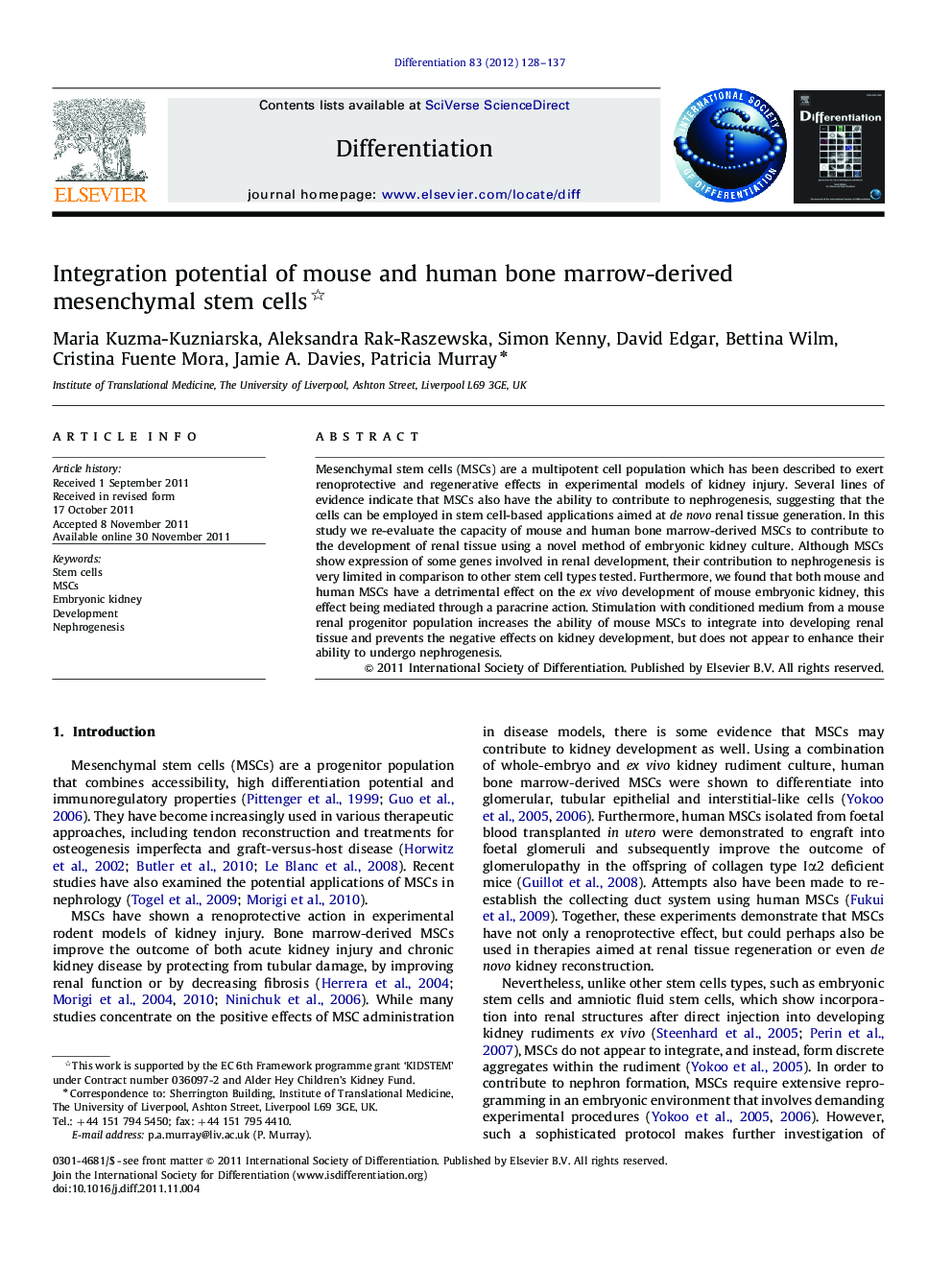| Article ID | Journal | Published Year | Pages | File Type |
|---|---|---|---|---|
| 2119600 | Differentiation | 2012 | 10 Pages |
Mesenchymal stem cells (MSCs) are a multipotent cell population which has been described to exert renoprotective and regenerative effects in experimental models of kidney injury. Several lines of evidence indicate that MSCs also have the ability to contribute to nephrogenesis, suggesting that the cells can be employed in stem cell-based applications aimed at de novo renal tissue generation. In this study we re-evaluate the capacity of mouse and human bone marrow-derived MSCs to contribute to the development of renal tissue using a novel method of embryonic kidney culture. Although MSCs show expression of some genes involved in renal development, their contribution to nephrogenesis is very limited in comparison to other stem cell types tested. Furthermore, we found that both mouse and human MSCs have a detrimental effect on the ex vivo development of mouse embryonic kidney, this effect being mediated through a paracrine action. Stimulation with conditioned medium from a mouse renal progenitor population increases the ability of mouse MSCs to integrate into developing renal tissue and prevents the negative effects on kidney development, but does not appear to enhance their ability to undergo nephrogenesis.
► MSCs display limited potential to integrate into the mouse kidney rudiment. ► MSCs have a negative effect on development of the mouse kidney rudiment ex vivo. ► Incubation of MSCs in kidney cell conditioned medium improves integration potential.
